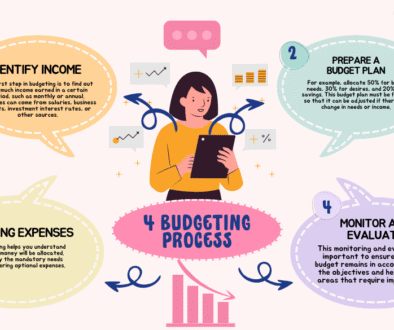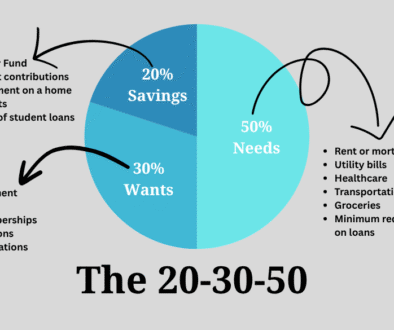Protecting Against Financial Risk & Fraud
The rising of digital technology plays important roles to grow business and make individuals life’s easier and convenience. However, fraud and scams are becoming more common which lead to personal credential and information being potentially leak and loss if we are not careful and not being aware of how fraud and scams happens. You need to aware and at least protect yourself and your family from possibility to lose your money and consequence the difficulty in the future.
1. Types of Financial Fraud & Scams in Cambodia
Understand and aware of common approaches of financial fraud and scams schemes will be a tool and being early alert to prevent financial losses and protect personal data.
1.1 Online Loan Scams
- How it works: lenders approach to target people with fast loan approval, attractive terms and conditions, but borrowers soon face hidden fees, high interest rates, aggressive payment.
- Fraud Sign: informal lenders without license, no loan Assessment or verification process, demand for upfront fees before loan approval, payments are more aggressively benchmark to our income or ability to repayment.
- Risk: borrowers have extremely debts and debts being accumulated to double or triple amount due to high interest rate, leading financial insecurity and potentially being threaten.
1.2. Phishing & Email/Messages Fraud
- How It Works: Someone sends fake messages commonly over email or any digital channels pretending to be banks, your boss, governments agencies to trick victims for their interest into providing credentials or financial detail user & password.
- Fraud Sign: suspicious link or unfamiliar senders, urgent demands to verify account details, or difference domain email address.
- Risk: when the scammers have your financial or personal credential information, they will access to bank accounts or financial platform to control it.
1.3 Fake Job& Remotely Work Scams
- How It Works: there job opportunity offers to you with a good deal and good conditions like remote job that you can work from home or anywhere that they will require payment for some fees such training fees, & application fees, but when money sent, they disappear.
- Sign: no employment contract, exaggerated earning for simple tasks and request for upfront payment.
- Risk: the scammer disappears and victim loss their money with no legitimate job opportunity.
1.3.1 Fake Education Opportunity.
- How It Works: Scammers announce a Good Opportunity for School Program, training program, or any degree program with promising to get high-quality educations, good term & conditions and guaranteed job after graduated. Some will give you out of worthless certificates and making people trust in it through any social media channels such LinkedIn, Facebook, or direct email. The scammers will ask to pay some fees upfront and they will disappear sometime.
- Sign: Too-Good-To-Be-Trust Information, limited contact information, no license recognized, always pressure and convince to enroll quickly with fake discounts and there is lack of testimonial & review by students or candidate.
- Risk: the scammers will disappear after getting your payments and cause you to lose your money & waste of time.
1.3.2 Ponzi & Pyramid Schemes
- How It Works: fraudster promise high return amount of money but use money from new investors to pay earlier investors while the pyramid schemes request to pay for recruit new members to sell their products. Creating a false news of profitability.
- Sign: lack of transparency of investment activities, unrealistic profits and recruitment requirements where earning based on get new investor on board & asking for upfront fee.
- Risk: One recruitment of investors or members are slowing down; the scheme fails and participants consequence with significant financial losses.
1.3.3 Fake Investment Opportunities
- How It Works: Scammers endorse new opportunity with seemingly large investment deals such invest in real estate, join an new business venture investment & lending their money to the fraudsters project for returning high interest rate, commonly happens in Cambodia and many people not being aware of this fraud, loss their money and lead to extremely debt with other lenders.
- Sign: complex terms, missing regulations review and approval, pressure to invest quickly like create limited opportunity and time sense to get victims interested.
- Impact: Victims lose their money to fraudulent schemes, often with no legal deal due to the lack of official contracts or agreements.
2. How to Stay Safe from Financial Fraud and Scams
2.1 Be Skeptical of Nonsense Offers
Be caution of any contacts or call unexpectedly with an investment opportunity, win prize or lucky draw winning from banks/ telecoms, loan offers. This type of scamming always makes you as urgency to pressure victim into making decision making.
2.2 Always Verify Information
Check domain name, verify license, review social media, check with any trust source or person you trust before you decide on any investments or take this kindly unknow or lack of information opportunity and look at customer’s review/feedback.
2.3 Avoid or Never Sharing Personal Information
Never share your personal data or information of your bank accounts, passwords, OTPs, or financial details.
2.4 Never Sell help someone for transferring or withdrawing Cash
2.5 Set-up Strong Password and Two-Factor Authentication
Create complicated passwords (not easy to guess or try by hackers) for each account you have and enable two-factor authentication (2FA) for more secure. This makes hackers or scammers harder to attack and access to your accounts.
2.6 Cautious with Online Shopping or Discount
Only Shop on trusted social media page (Facebook page, Instagram Page), website, and avoiding unknow or untrusted link in those social Medias or messengers. Scammers use fake pages to steal your payment details.
2.7 Keep Learning about Scam Trend and Tactics
Scammers or black hackers constantly changes tactics and approaches. Keep yourself learning or reading about these trends or about common fraud schemes such as phasing emails, fake investment opportunities, and identity theft.




